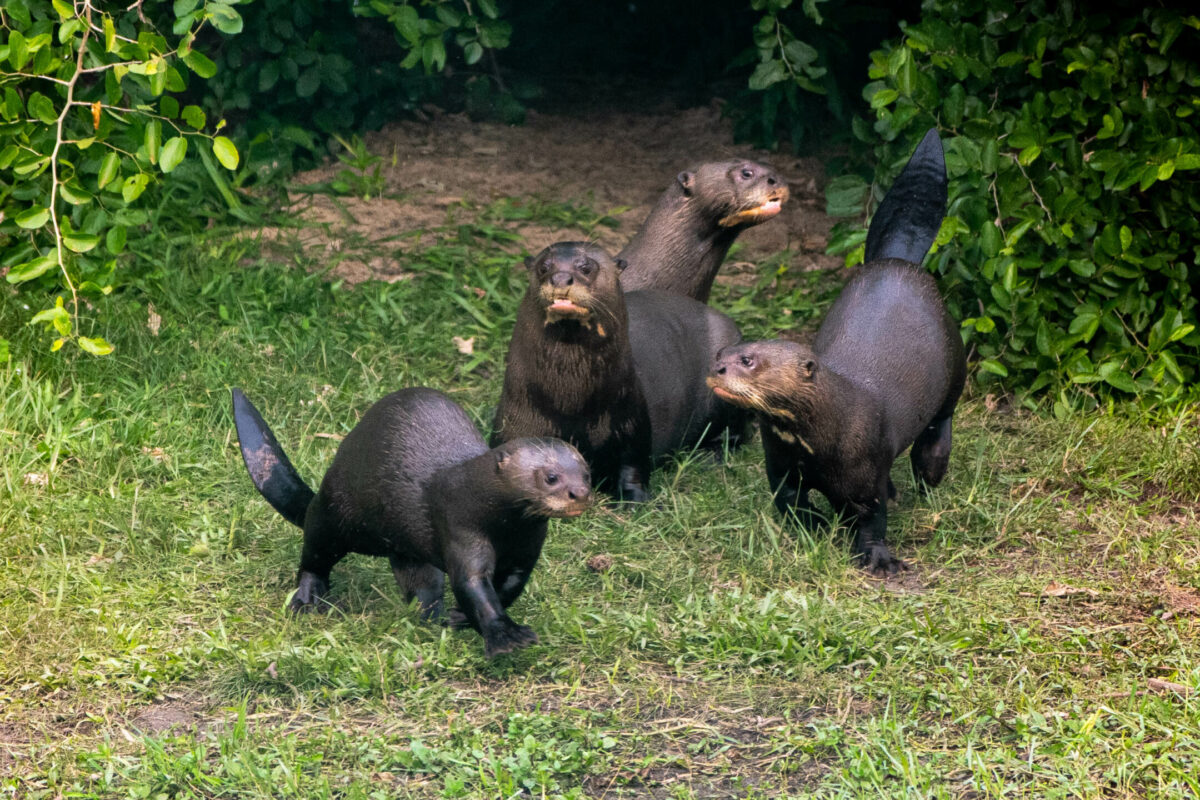A family of giant river otters was released into the Iberá National Park in northeast Argentina on July 1. The endangered species, with no known breeding populations in Argentina over the past 40 years, was considered probably extinct in the country. The release, led by conservation nonprofit Rewilding Argentina, included a breeding pair named Coco and Nima, translocated from different zoos in Europe, and their offspring, named Pirú and Kyra. The family of four now swim freely in Laguna Paraná, a lake in the Iberá wetlands located in the province of Corrientes. “This is the first time this species has been reintroduced to a place from where it had disappeared,” Rewilding Argentina wrote on Instagram. “It’s also the first time a mammal declared extinct in Argentina has been brought back.” The endangered giant otter (Pteronura brasiliensis) is the largest of the world’s 14 otter species, reaching up to 1.8 meters (nearly 6 feet) in length and weighing as much as 34 kilograms (75 pounds). “The last family groups of giant otters in Argentina were observed in 1986,” Sebastián Di Martino, conservation director at Rewilding Argentina, said in a statement. “The giant otter is the top aquatic predator in these wetlands, and its diet consists almost entirely of fish, so its presence contributes significantly to maintaining healthy ecosystems.” While giant otter families disappeared from Argentina in the 1980s, a rare sighting occurred in 2021, when one individual was spotted in the Impenetrable National Park in northeastern Chaco province. Experts previously told…This article was originally published on Mongabay
From Conservation news via this RSS feed


